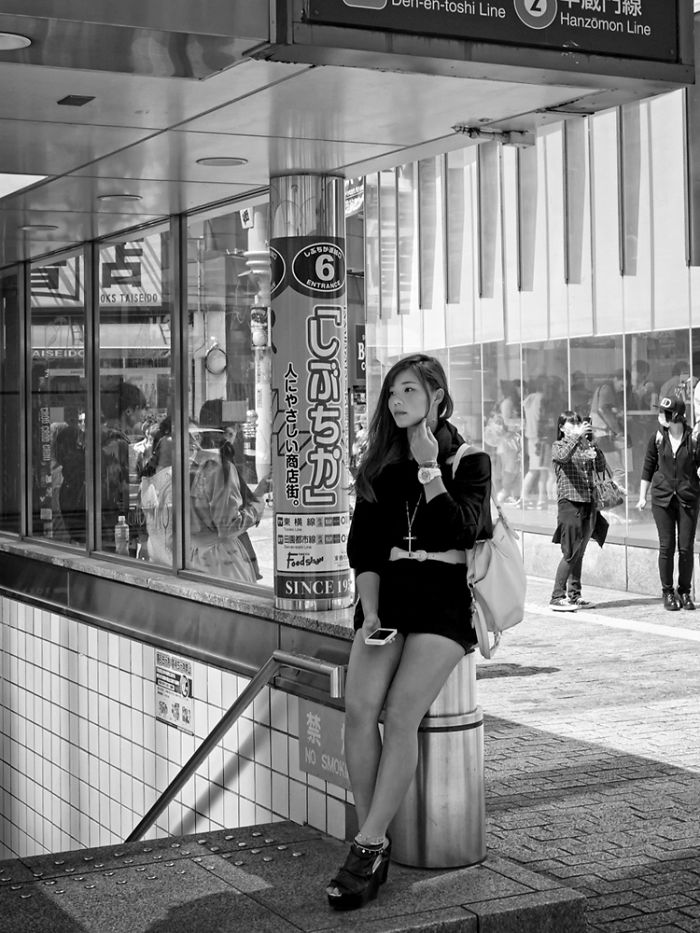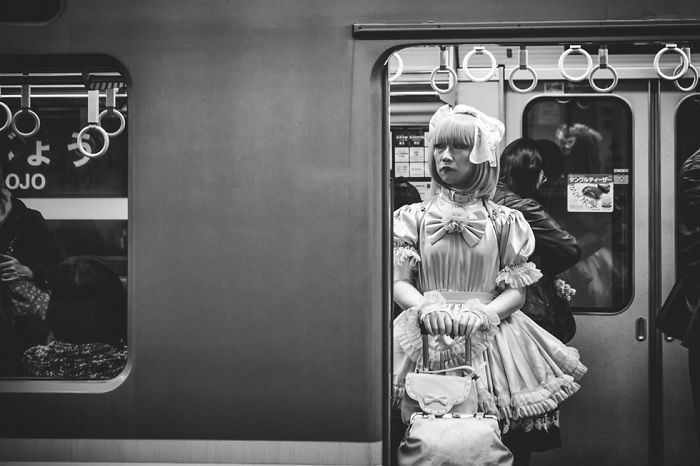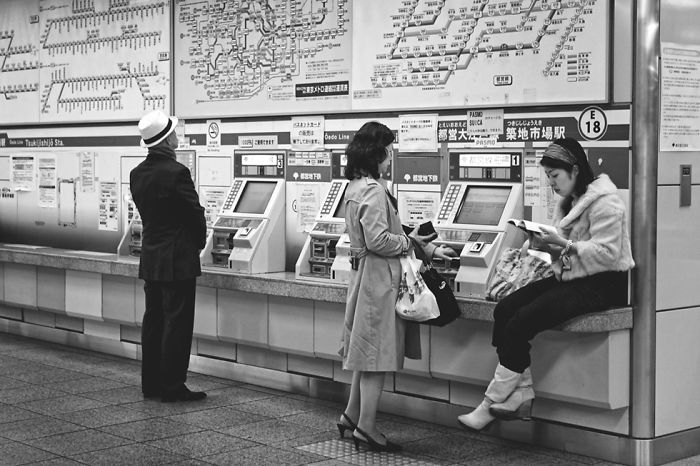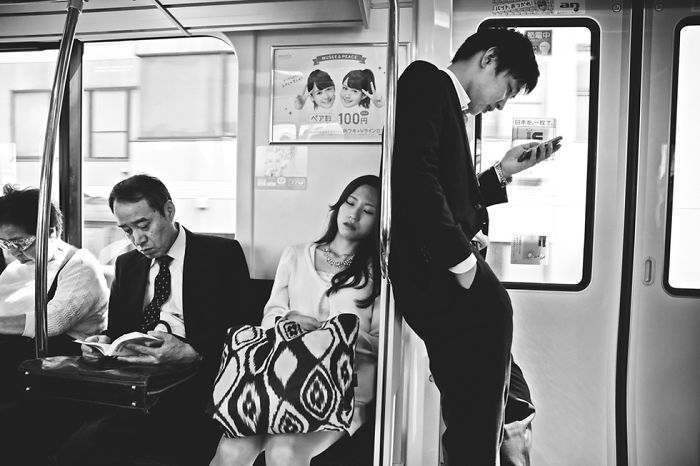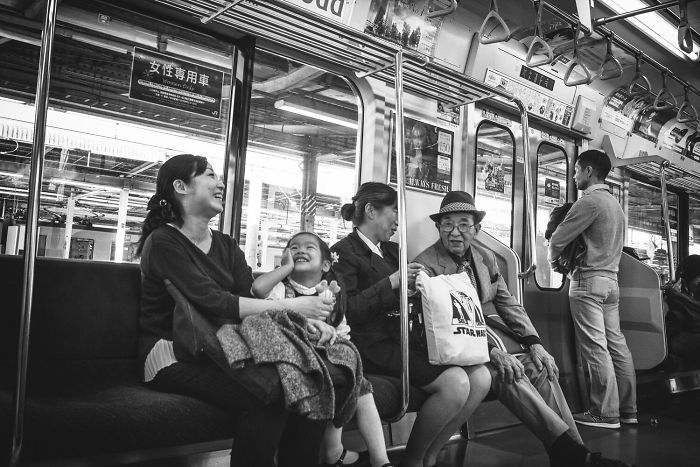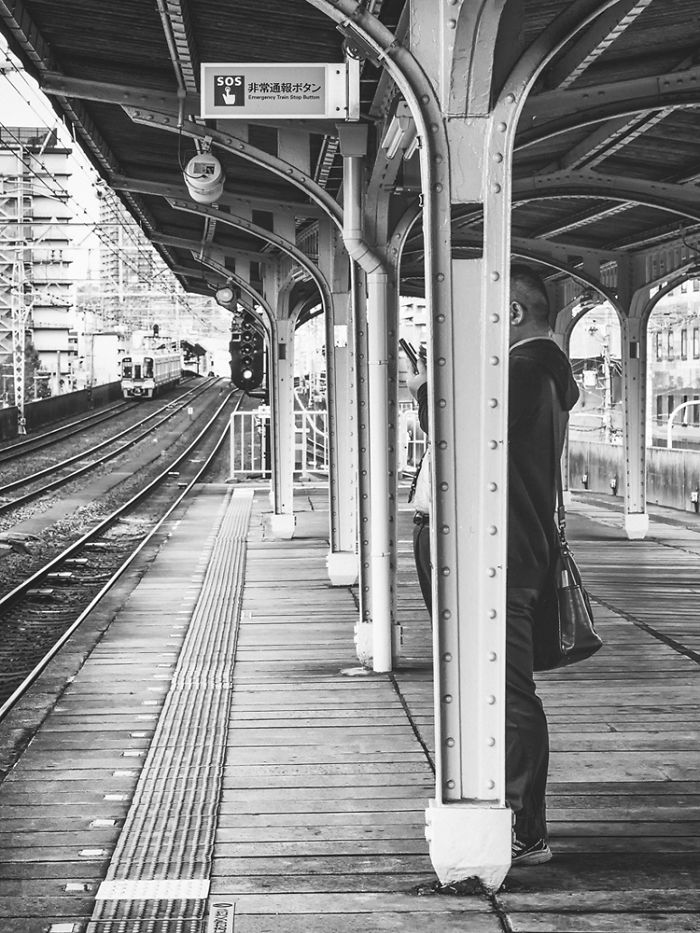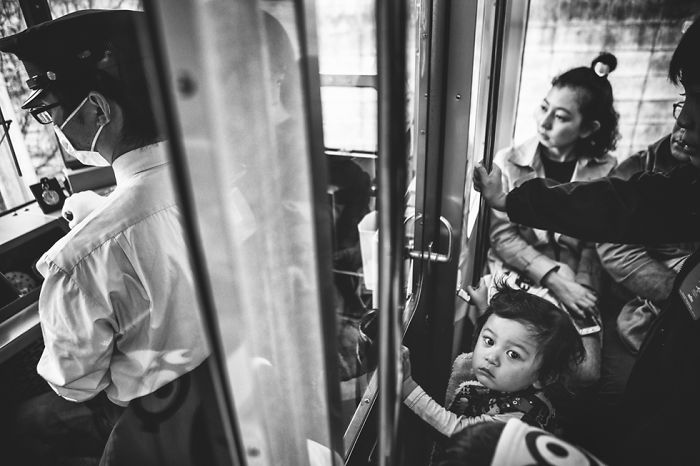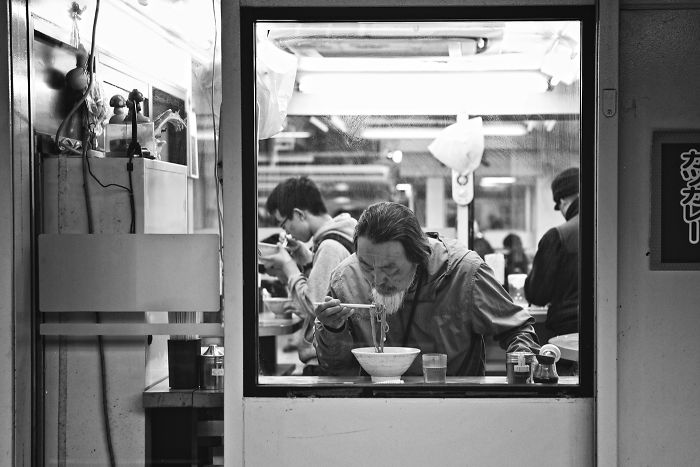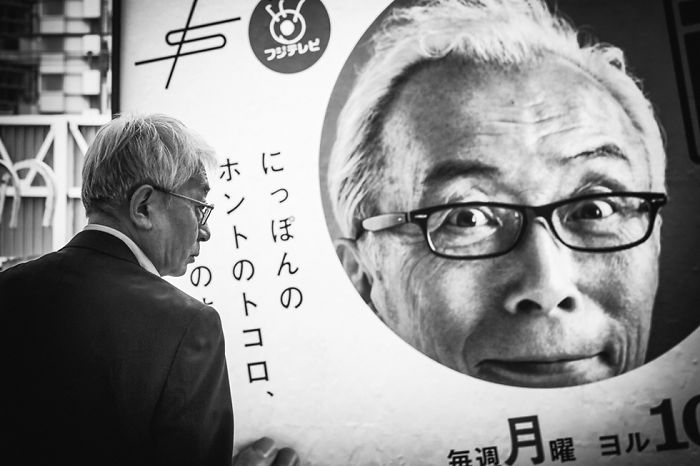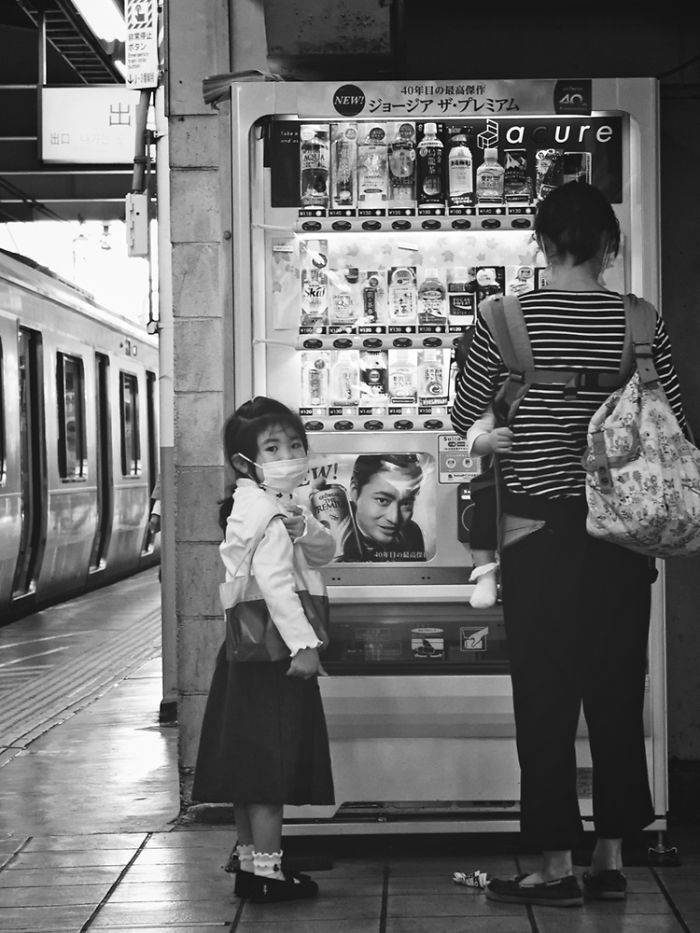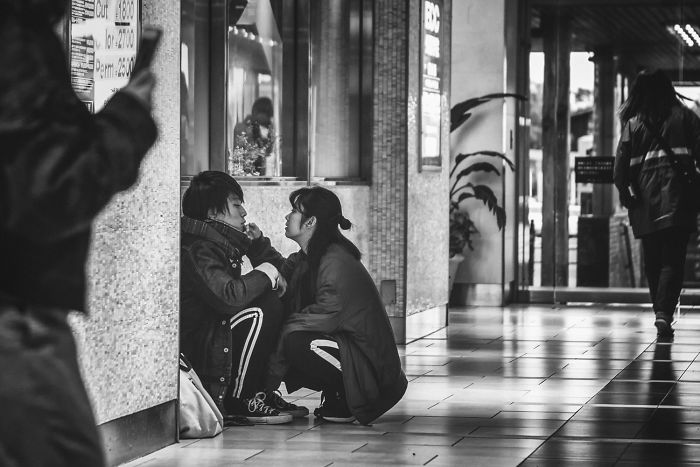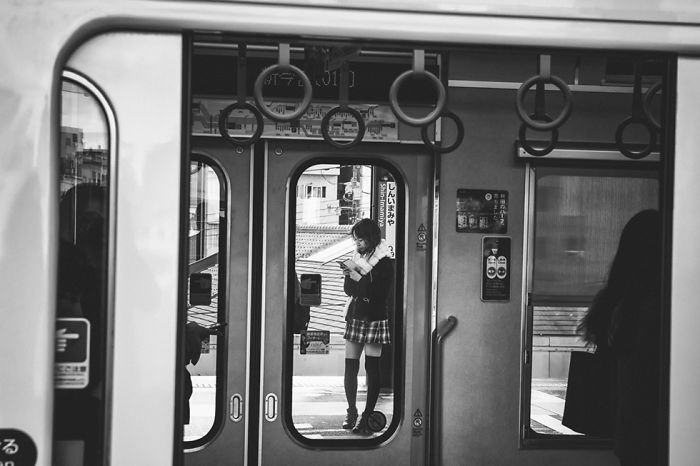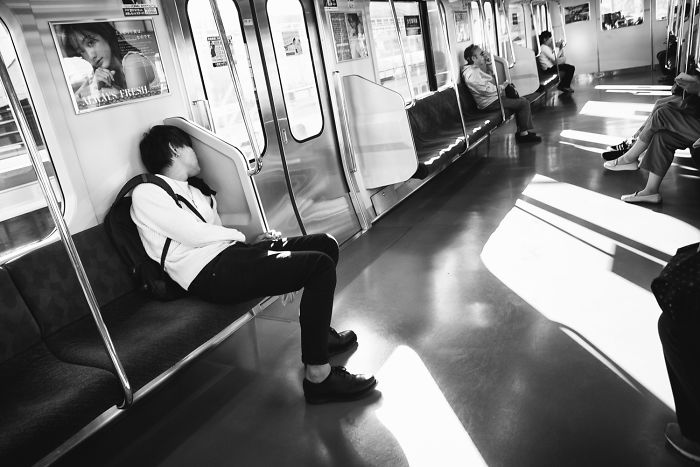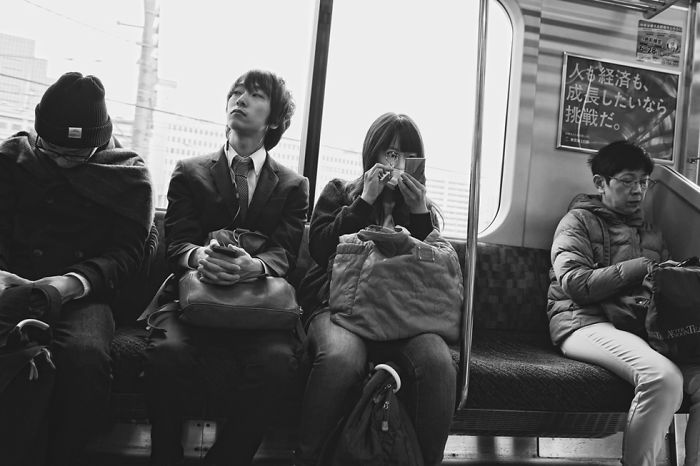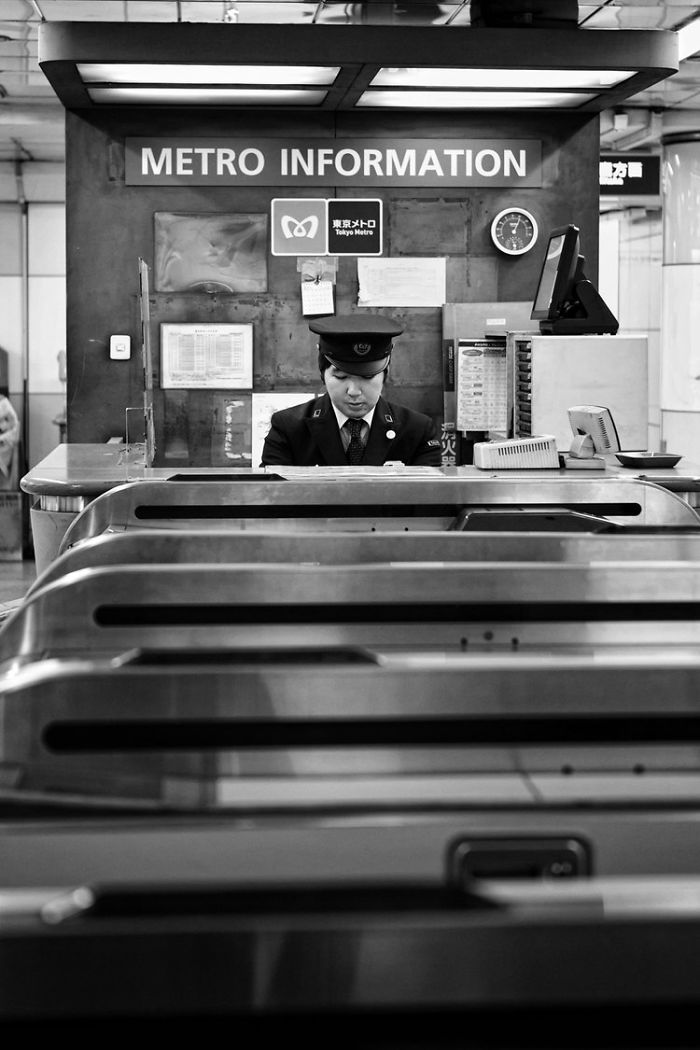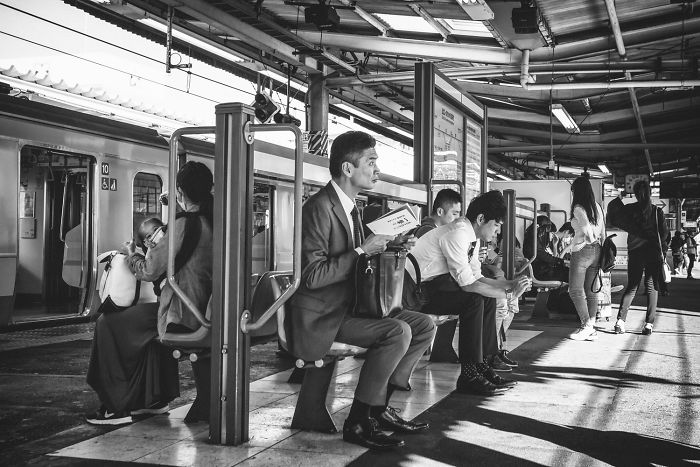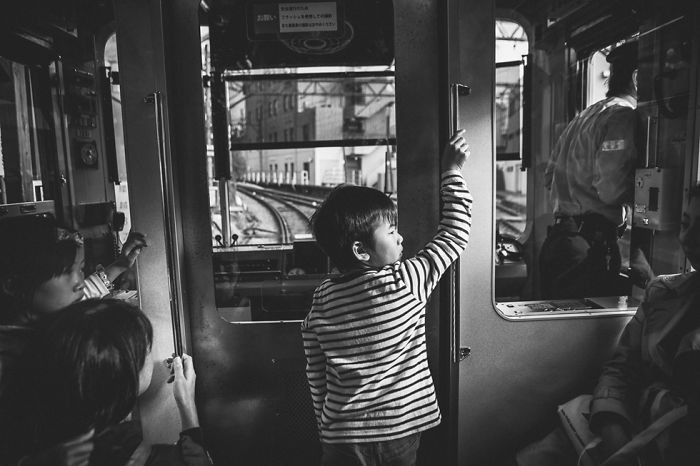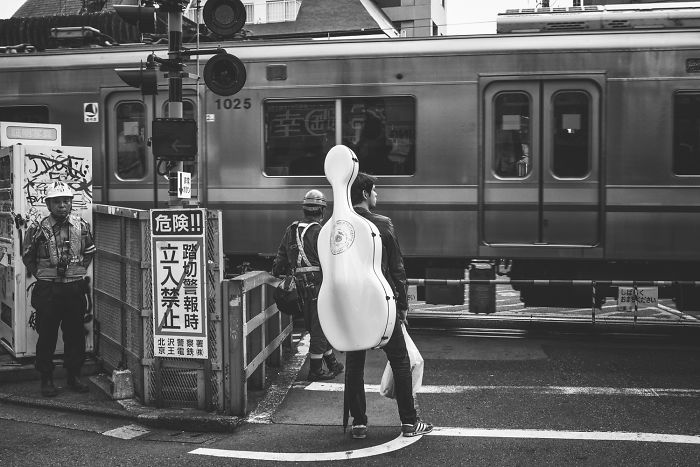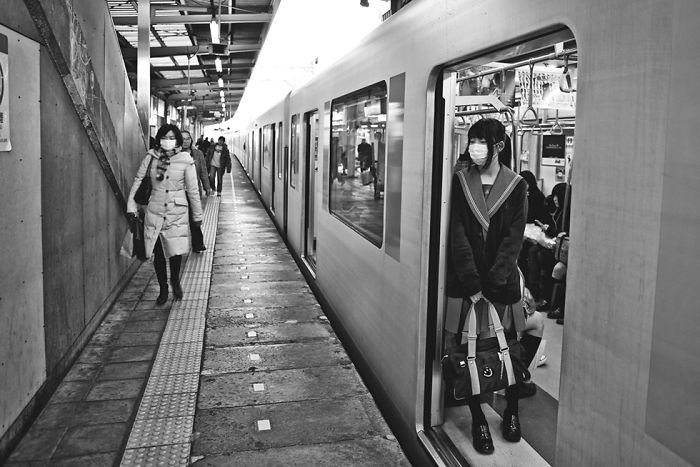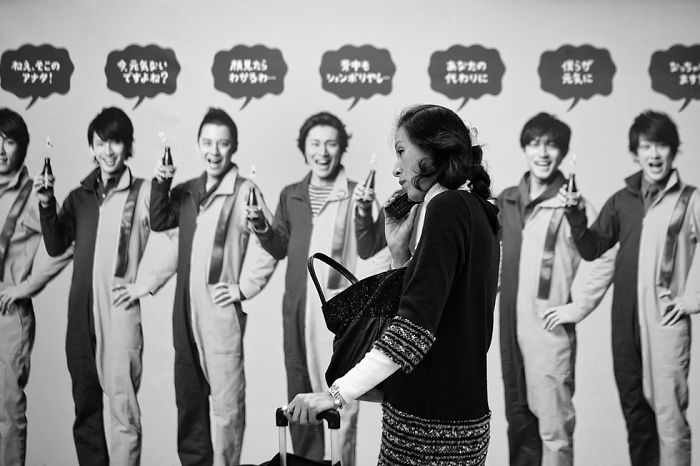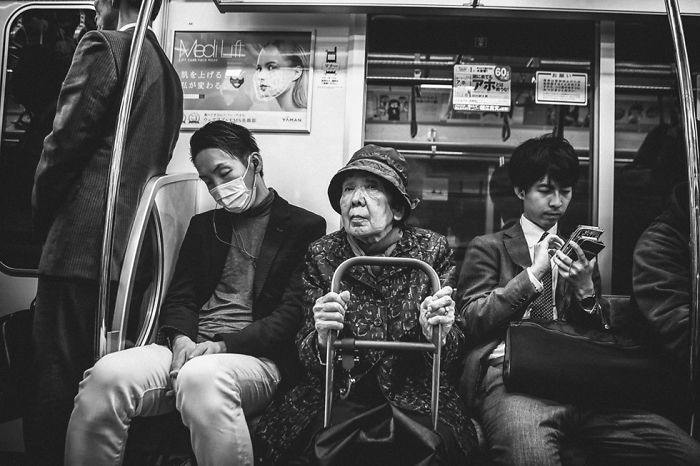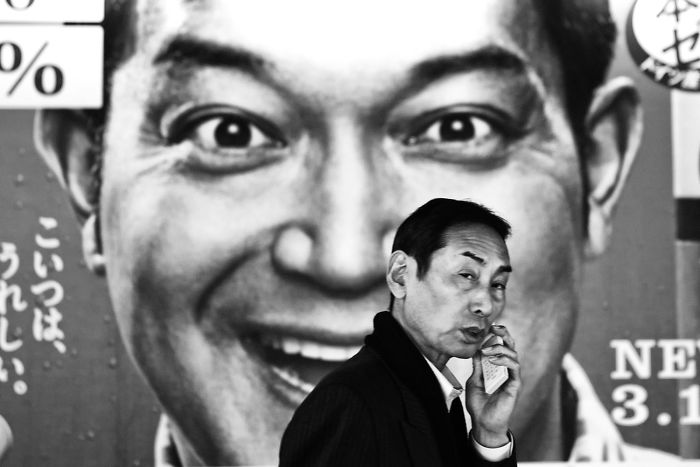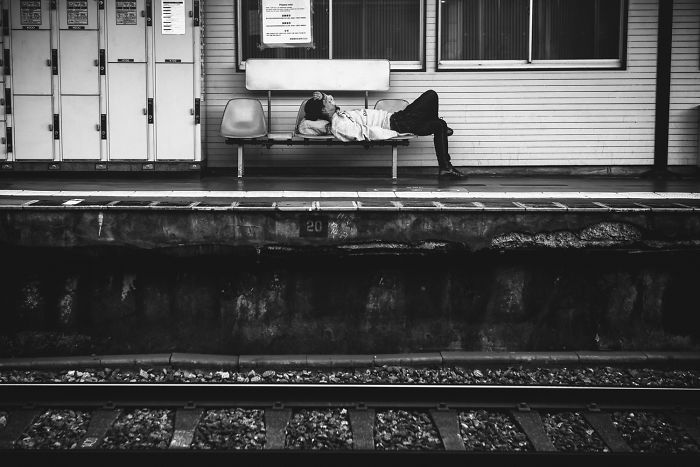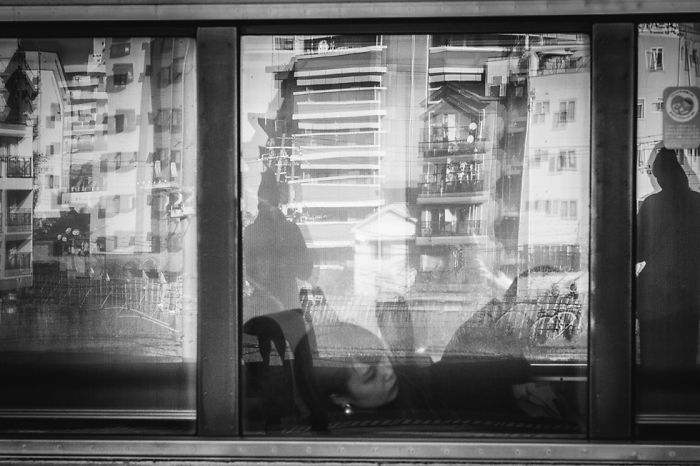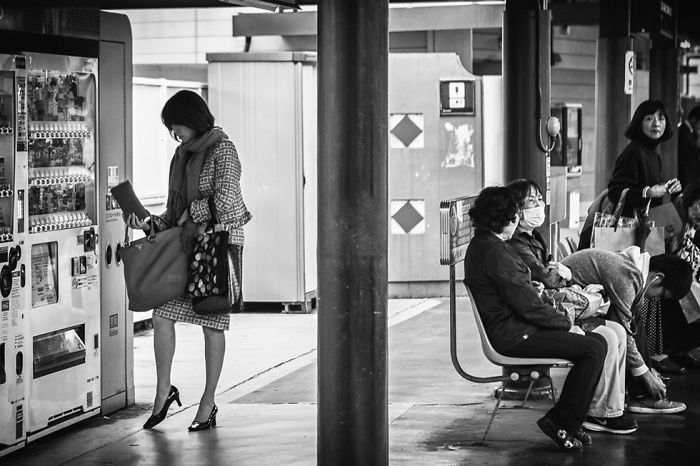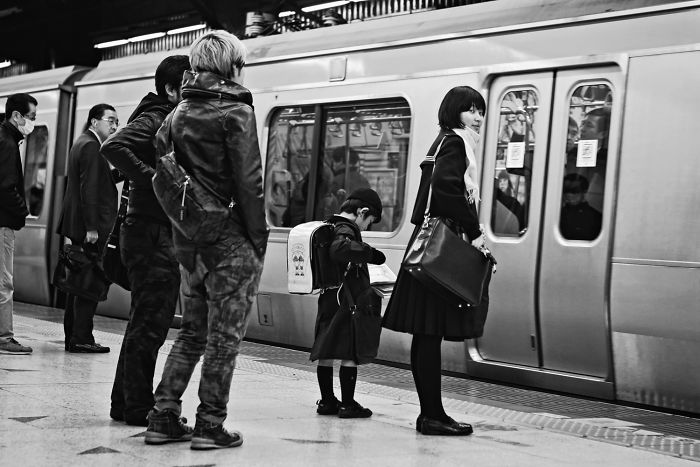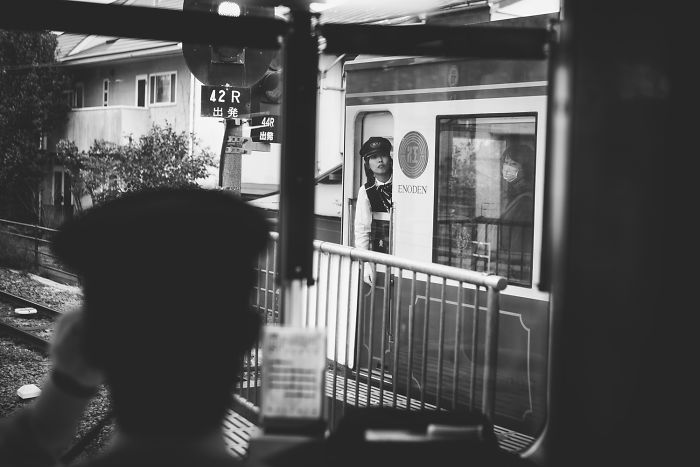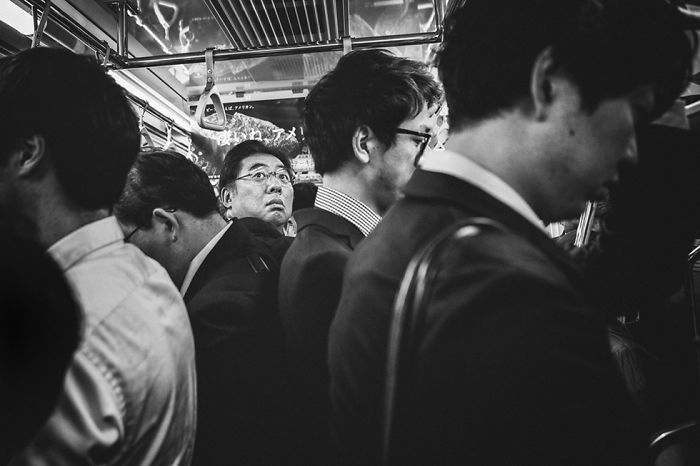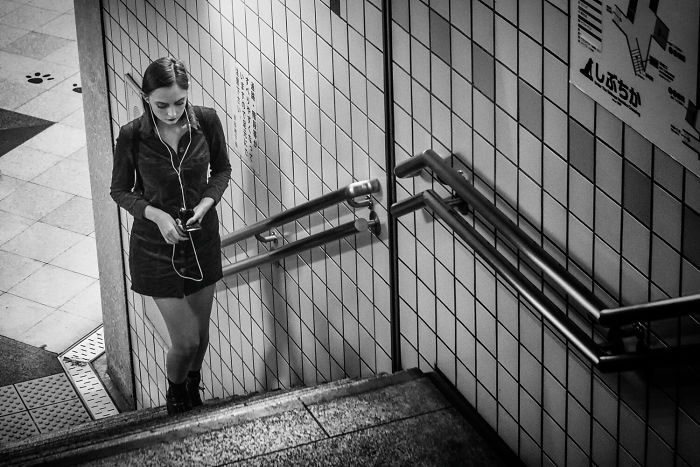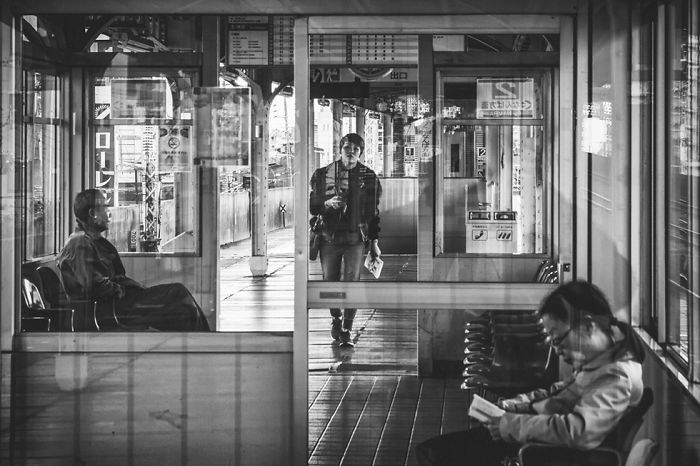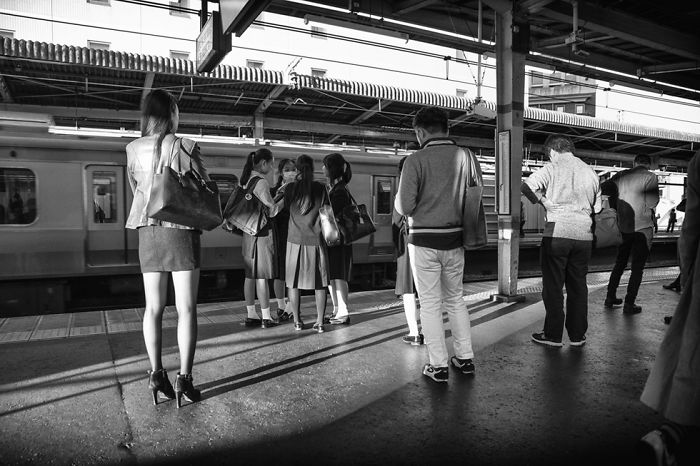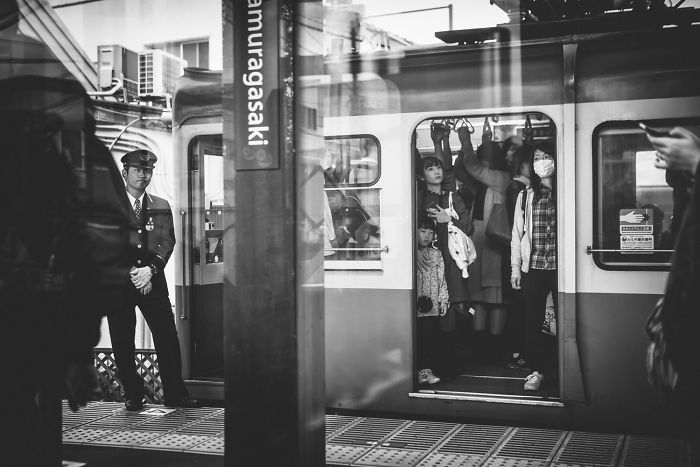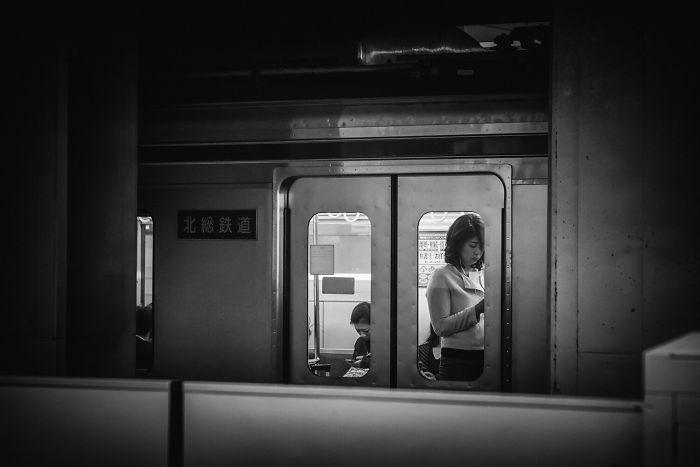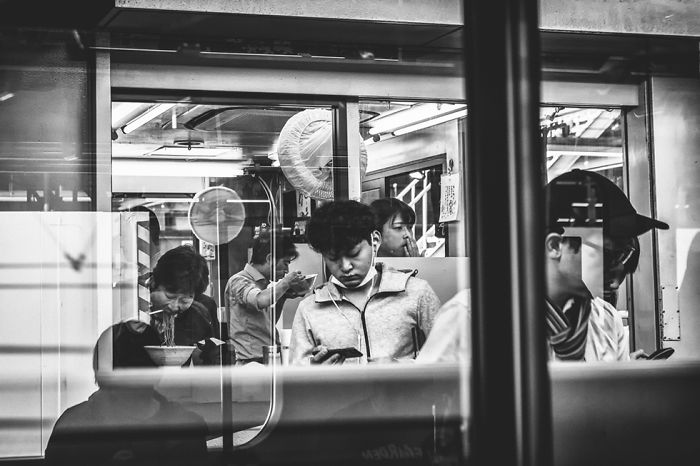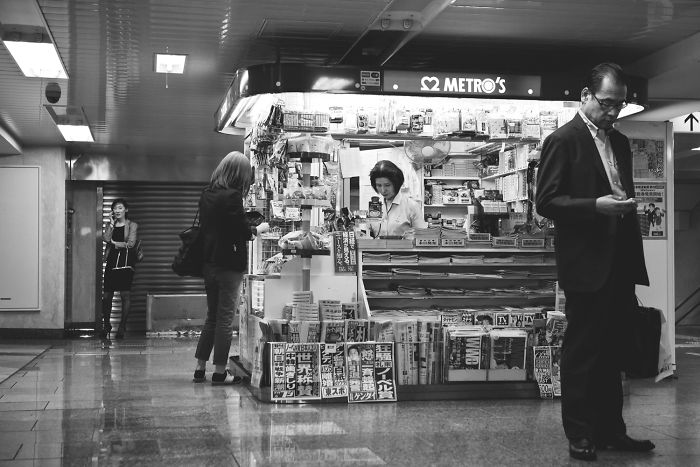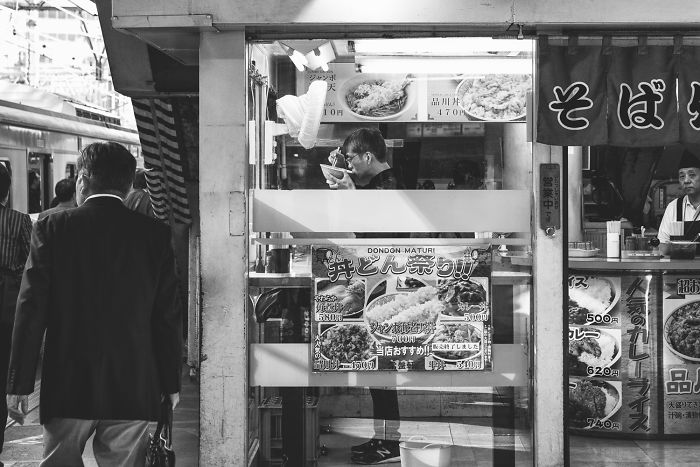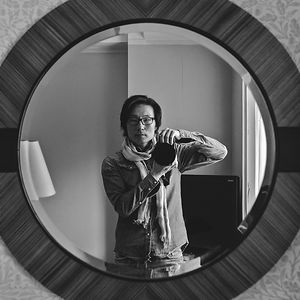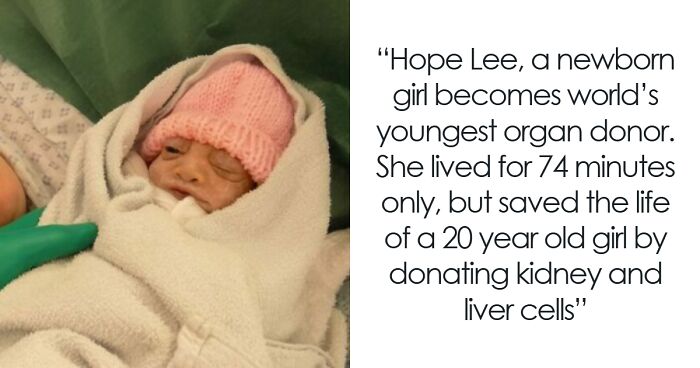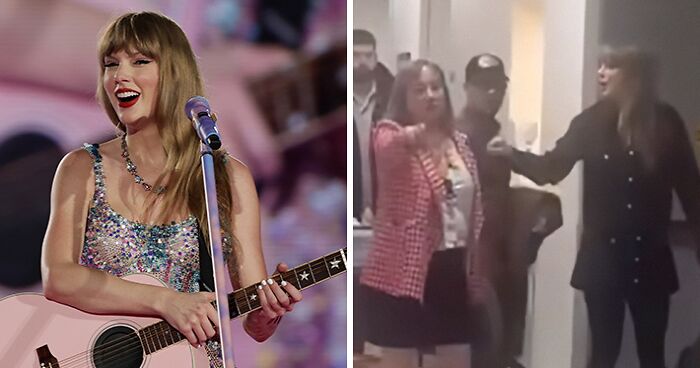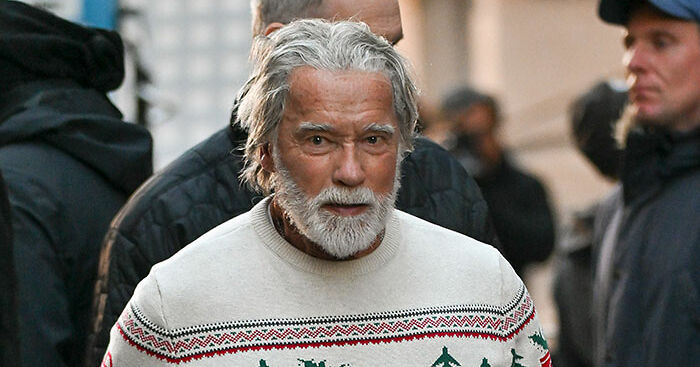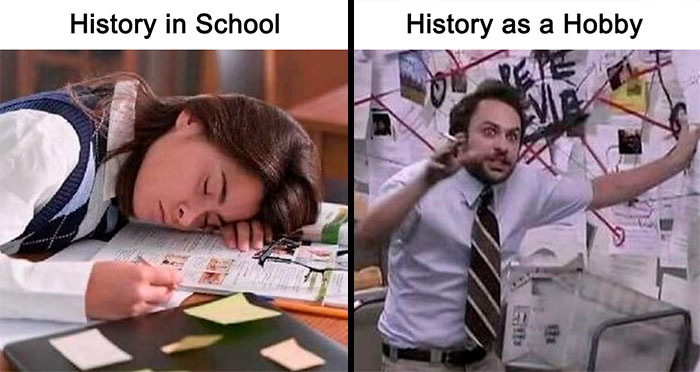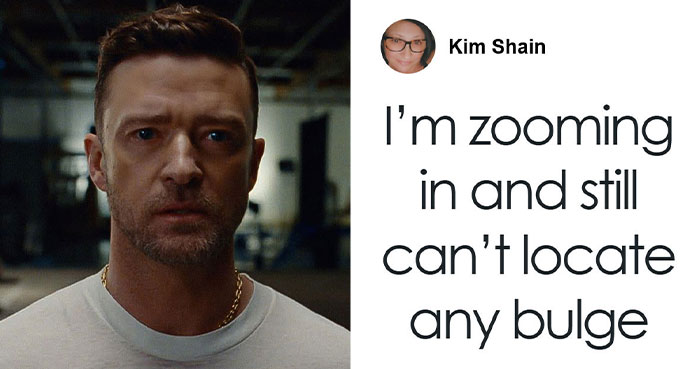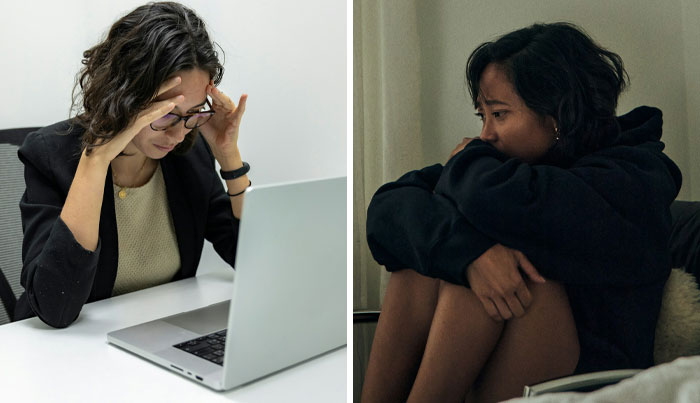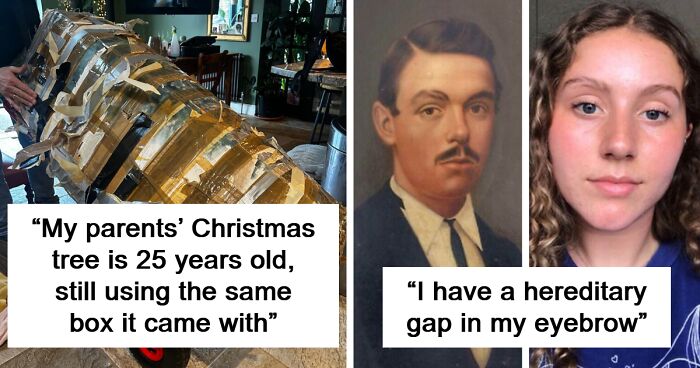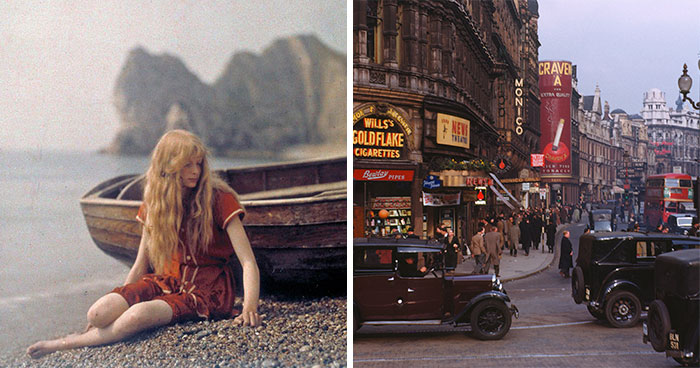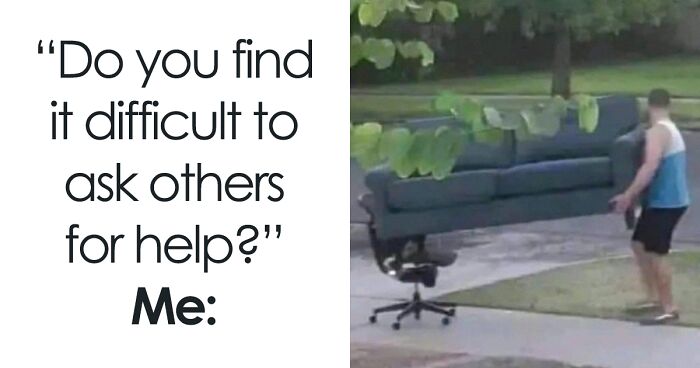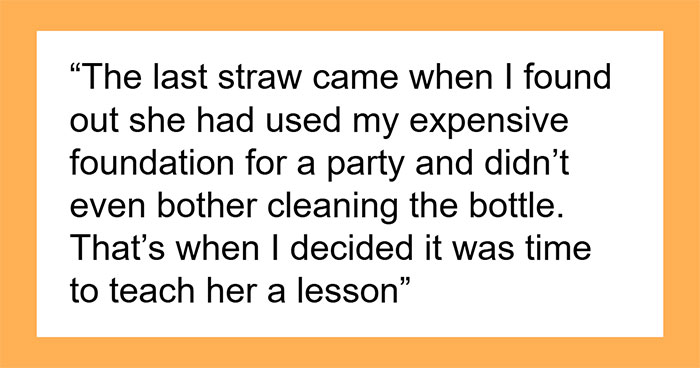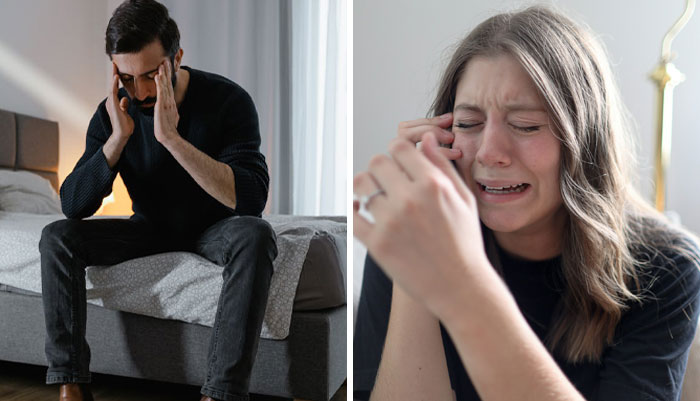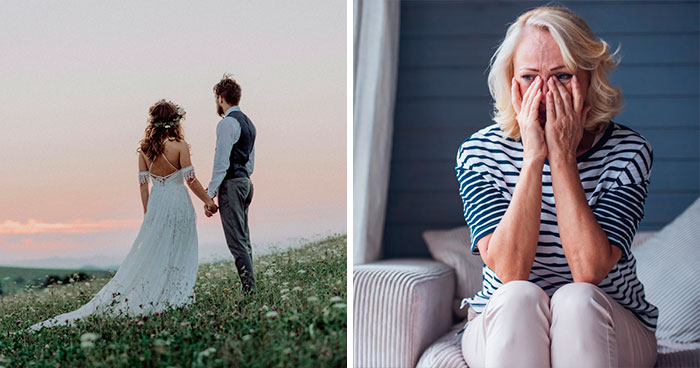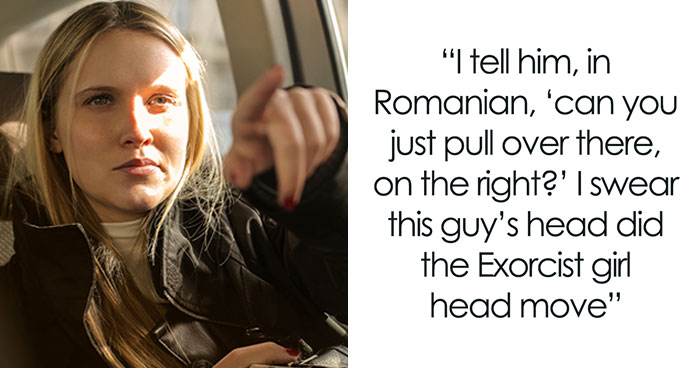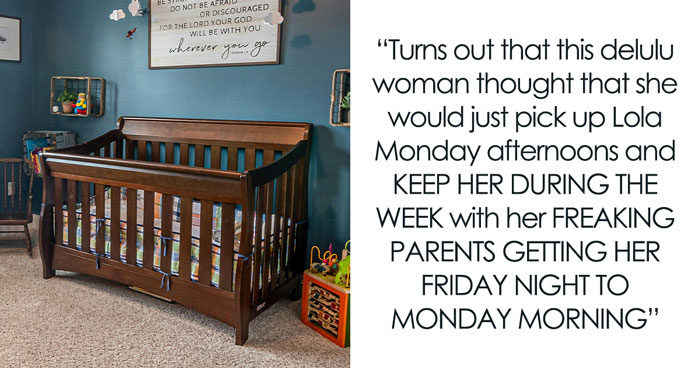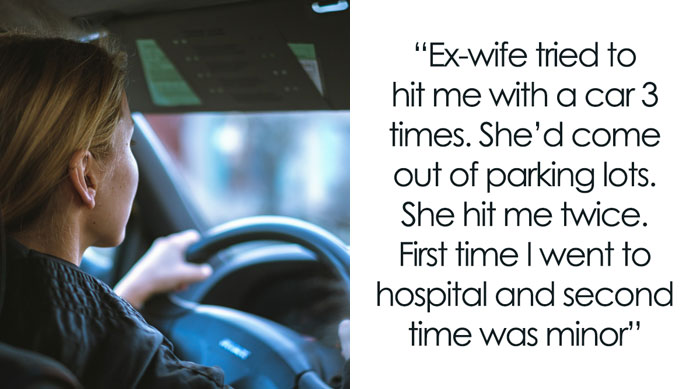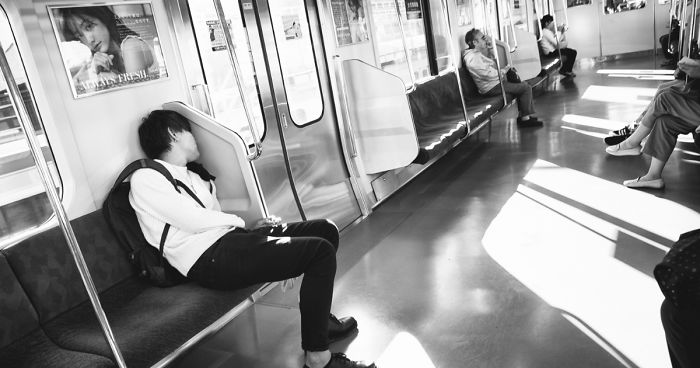
24Kviews
I Rode Trains In Japan With My Camera In Hand To Capture Its Fascinating Train Culture (36 Pics)
It was a pleasant culture shock when I first visited Japan in 2006. I especially loved Tokyo. It's a city bustling with energy and rich in culture, a juxtaposition of old and ultra-modern. The lure of Japan was powerful and I ended up making several more trips there with my camera in hand.
One of the many fascinating things about Japan and Tokyo, in particular, is its vast railway system and the people who use it. I live in California where we have an automobile culture and most of us spend many hours in cars getting around. For the Japanese, trains are the major means of transportation. They’re in the trains and train stations almost daily to commute to work or school, and run errands. To make lives easier for those busy bodies, everyday necessities, such as grocery stores, restaurants, and other numerous retailers are found inside or near the stations. It’s quite convenient, even for tourists. I bought the tastiest pork dumplings inside the Shin-Osaka Train Station and ate them for lunch inside the Tokyo-bound Shinkansen (bullet train). My mouth is watering just thinking about those dumplings.
I look forward to riding the trains while in Japan. As a Street Photographer, it allows me to observe people in their daily lives and capture something that’s uniquely Japanese as well as get creative composing each frame to tell an interesting story. I hope by sharing these photographs, I'm able to show a little slice of the intriguing culture of Japan.
More info: Instagram | pakhan.com
This post may include affiliate links.
Ticket machines?!? In America we have live raccoons which sell the tickets. Japan is so odd!
Isn't it dangerous? I mean - if the train stops suddenly, she may pull out her eyelashes.
She's actually looking at the Ikemen next to her through her mirror...he-he
I watched the entire gallery with great interest. You have great eye for details and can capture the moment. Amazing work!
Thank you Enuya for the kind words! I appreciate you taking the time to see my work and sharing your thoughts.
Load More Replies...Fantastic.. I so want to get back to Japan after 25 years. So much has changed.... but still a very clean place.
I am a fan of black and white photos , I think they show better the essential....
These are so powerful! I love the effect black and white can have, personally I love taking pictures in it ^ ^ <3
Bluebell, thank you for viewing my photos and sharing your thoughts!
Load More Replies...it doesn't look like you actually asked anyone if they wanted to be a part of your little project. as a Japanese person who rides crowded trains, I most certainly would not enjoy being photographed by someone I do not know, from a low angle without my knowledge.
Matsuhashi-san, I understand your concern. My goal as a street & documentary photographer is to creatively document the everyday life in an urban environment. Many images of our past that are now in the pages of books and shown in other various mediums were taken by photojournalists and documentary photographers. A renown Japanese street photographer Daido Moriyama, who’s still alive today has taken many rare images depicting the contrast of traditional and modern post-war Japan that are celebrated today. I’m not trying to compare myself to this photographer. I guess what I’m trying to say is that the world would be a sad place if only tragic events such as wars or disasters are documented and the everyday life history is ignored.
Load More Replies...So well captured Pak...!! And your writing is so natural. You’ve found your voice in your writing. Many writers, even highly paid ones, never really find their voice. Keep it up ... Jim Tobin
Jim, much gratitude for your kind words and support!
Load More Replies...This was a really good shoot. Honestly, I really liked it, props to you!
What train culture??? These are just people taking public transport .
As much as I like street photography, and you say that it is to "creatively document the every day life", you have to understand that not all people want to be documented. They could be livid if they find their image posted online (even friends ask before posting). Its strongly part of Japanese culture and reflected in its law, thus is insensitive and to some extent illegal to do without consent. Japan is very "private in public". And the very thing you say you have a culture shock of should be the first hint of that. - The announcers and silent mode signs on the trains. Also the posters against dodgy photography in the train stations asking to report them. Although it doesn't happen often, you are lucky you didn't have have police involvement. All it takes is one female feeling any level of "stress". Pictures of other peoples children are also a nono. Look up: "Japan Anti-Nuisance Ordinance" and remember you don't represent yourself when overseas, you represent all foreigners.
Michael, thank you for your comment. I know that street photography can be a contentious art form and there’s been many debates due to our ever increasing photo-centric society. I’m aware of the sensitivity about public photos in Japan. It started with the introduction of smart phones and people began snapping away in all places. I carry a large DSLR camera and use it in plain sight. If I can, I seek consent or show what I’m doing. Two of the child photos were taken with consent from their parents. They were beside me when I took the shot. I also try to take photos with people’s faces fully or partially hidden. With street photography, subjects appear in an instant in bustling urban environment, sometimes separated by distance or some kind of barrier. Street photographers in Japan are on the rise and some becoming noted for capturing people in daily lives. It’d be interesting to see their progress. Reading comments in the last few days has been an eye-opener. Thank you again.
Load More Replies...It's pretty creepy taking photos of people without their consent. Especially since a few are of women and children. Should they find out, they could sue you and BoredPanda. Refer to Article 16 of the Constitution (right to privacy) and Chapter 5 of the civil code (tort law).
An, thank you for expressing your opinion and concern. Street Photography is conducted for art or enquiry that features unmediated chance encounters and random incidents within public places. photojournalists, travel and documentary photographers all fit in the same category. I do not enter any private properties or harass people like a paparazzi for my photos. If you're curious about street photography, please go to Instagram or photo portfolio sites such as Flickr where you can see many examples by photographers (Many well known) from around the world.
Load More Replies...Photography, just like any art form is subjective, so I don’t expect everyone to like or feel a connection to my photos. I appreciate your honesty and visiting this article.
Load More Replies...I watched the entire gallery with great interest. You have great eye for details and can capture the moment. Amazing work!
Thank you Enuya for the kind words! I appreciate you taking the time to see my work and sharing your thoughts.
Load More Replies...Fantastic.. I so want to get back to Japan after 25 years. So much has changed.... but still a very clean place.
I am a fan of black and white photos , I think they show better the essential....
These are so powerful! I love the effect black and white can have, personally I love taking pictures in it ^ ^ <3
Bluebell, thank you for viewing my photos and sharing your thoughts!
Load More Replies...it doesn't look like you actually asked anyone if they wanted to be a part of your little project. as a Japanese person who rides crowded trains, I most certainly would not enjoy being photographed by someone I do not know, from a low angle without my knowledge.
Matsuhashi-san, I understand your concern. My goal as a street & documentary photographer is to creatively document the everyday life in an urban environment. Many images of our past that are now in the pages of books and shown in other various mediums were taken by photojournalists and documentary photographers. A renown Japanese street photographer Daido Moriyama, who’s still alive today has taken many rare images depicting the contrast of traditional and modern post-war Japan that are celebrated today. I’m not trying to compare myself to this photographer. I guess what I’m trying to say is that the world would be a sad place if only tragic events such as wars or disasters are documented and the everyday life history is ignored.
Load More Replies...So well captured Pak...!! And your writing is so natural. You’ve found your voice in your writing. Many writers, even highly paid ones, never really find their voice. Keep it up ... Jim Tobin
Jim, much gratitude for your kind words and support!
Load More Replies...This was a really good shoot. Honestly, I really liked it, props to you!
What train culture??? These are just people taking public transport .
As much as I like street photography, and you say that it is to "creatively document the every day life", you have to understand that not all people want to be documented. They could be livid if they find their image posted online (even friends ask before posting). Its strongly part of Japanese culture and reflected in its law, thus is insensitive and to some extent illegal to do without consent. Japan is very "private in public". And the very thing you say you have a culture shock of should be the first hint of that. - The announcers and silent mode signs on the trains. Also the posters against dodgy photography in the train stations asking to report them. Although it doesn't happen often, you are lucky you didn't have have police involvement. All it takes is one female feeling any level of "stress". Pictures of other peoples children are also a nono. Look up: "Japan Anti-Nuisance Ordinance" and remember you don't represent yourself when overseas, you represent all foreigners.
Michael, thank you for your comment. I know that street photography can be a contentious art form and there’s been many debates due to our ever increasing photo-centric society. I’m aware of the sensitivity about public photos in Japan. It started with the introduction of smart phones and people began snapping away in all places. I carry a large DSLR camera and use it in plain sight. If I can, I seek consent or show what I’m doing. Two of the child photos were taken with consent from their parents. They were beside me when I took the shot. I also try to take photos with people’s faces fully or partially hidden. With street photography, subjects appear in an instant in bustling urban environment, sometimes separated by distance or some kind of barrier. Street photographers in Japan are on the rise and some becoming noted for capturing people in daily lives. It’d be interesting to see their progress. Reading comments in the last few days has been an eye-opener. Thank you again.
Load More Replies...It's pretty creepy taking photos of people without their consent. Especially since a few are of women and children. Should they find out, they could sue you and BoredPanda. Refer to Article 16 of the Constitution (right to privacy) and Chapter 5 of the civil code (tort law).
An, thank you for expressing your opinion and concern. Street Photography is conducted for art or enquiry that features unmediated chance encounters and random incidents within public places. photojournalists, travel and documentary photographers all fit in the same category. I do not enter any private properties or harass people like a paparazzi for my photos. If you're curious about street photography, please go to Instagram or photo portfolio sites such as Flickr where you can see many examples by photographers (Many well known) from around the world.
Load More Replies...Photography, just like any art form is subjective, so I don’t expect everyone to like or feel a connection to my photos. I appreciate your honesty and visiting this article.
Load More Replies...
 Dark Mode
Dark Mode 

 No fees, cancel anytime
No fees, cancel anytime 


